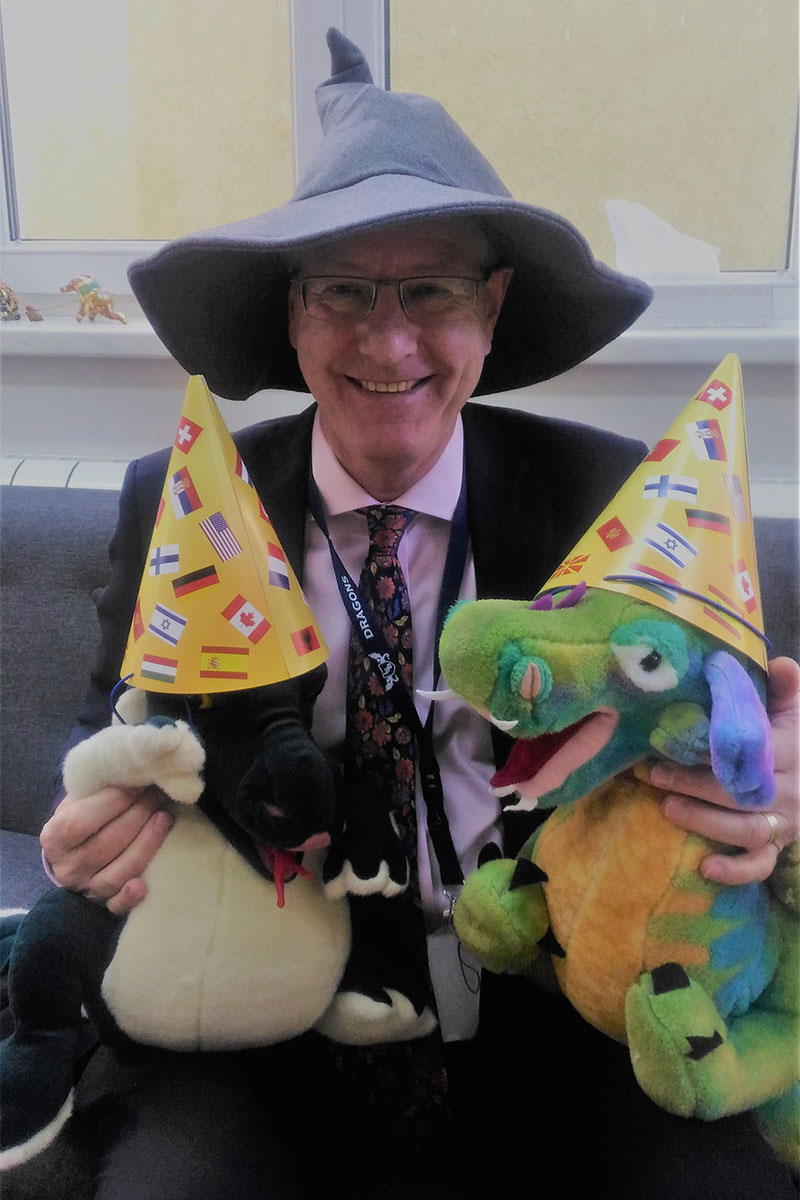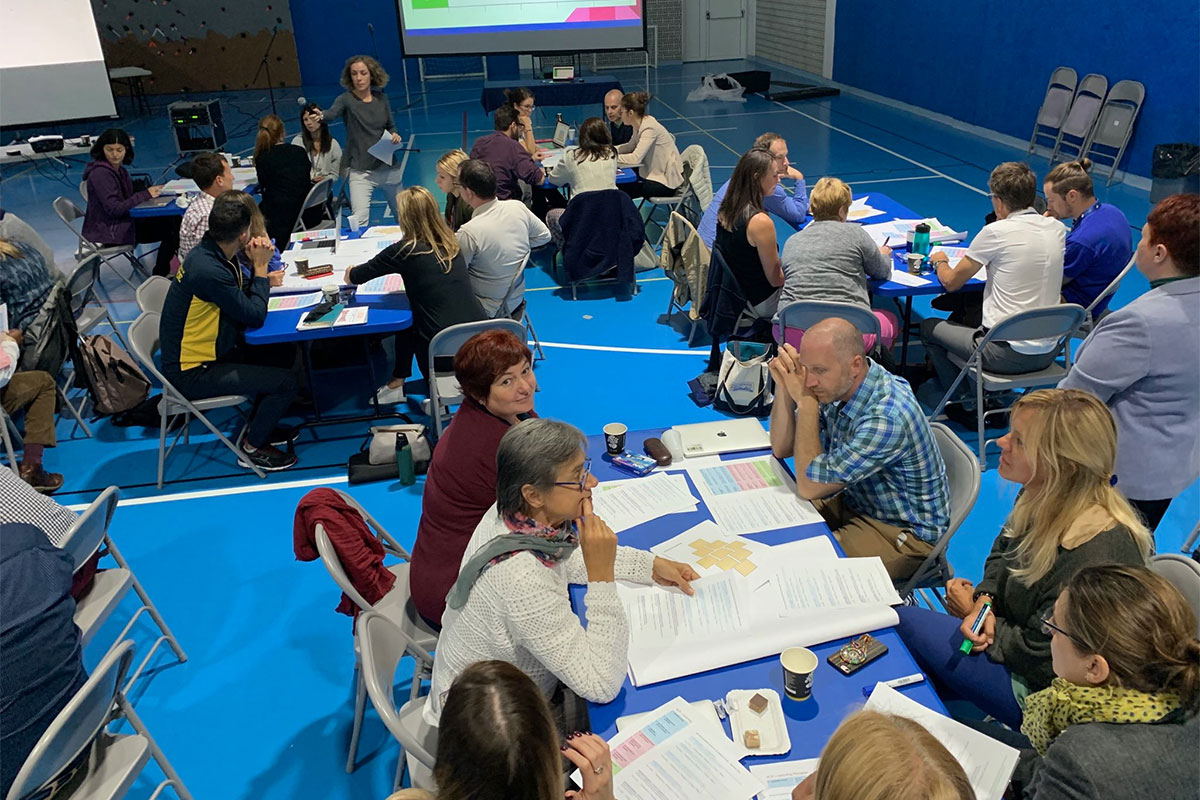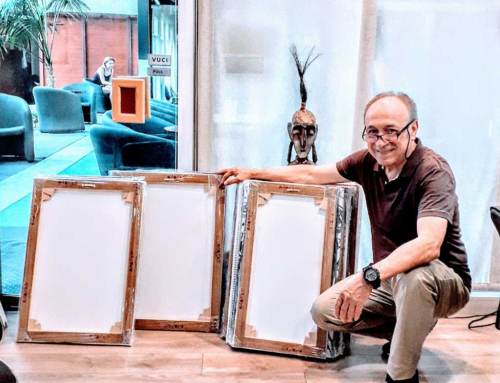Interjvu – Endru Deri, novi direktor ISB škole
Endru Deri je odlučan da se izbori s brojnim izazovima sistema modernog obrazovanja. Veruje da škole ne mogu da žive u izolaciji, već da treba da se povezuju s preduzetničkim zajednicama kako bi učenici imali kontakt sa stvarnim svetom.
Na početku osme decenije postojanja ISB škole, odlučni ste u nameri da je učinite još istaknutijom…
Odbor i ja mislimo da je naša škola veoma dobra, ali imamo ambicije da postanemo vodeća međunarodna škola u čitavoj oblasti centralne i zapadne Evrope. Već imamo osmišljen strateški plan. Kad jednom postanete dobri, obično mislite da ste dobri, i tu se priča završava – dok biti sjajan zahteva neprestano nezadovoljstvo postignutim, stalnu posvećenost ciljevima. Naši nastavnici su naše najvrednije blago; zapravo, oni su sjajni, i više od sedamdeset posto njih ima međunarodno iskustvo. Druga bitna stvar jeste to što imamo vrlo jasnu viziju šta je suština obrazivanja.
Spomenuli ste da tzv. VUCA svet ima veliki uticaj na obrazovanje…
Sâm svet je promenljiv, prepun neizvesnosti, složen i dvosmislen. Pitanje je kako obrazujete decu za život u takvom svetu. Prema rezultatima globalne ankete Svetskog ekonomskog foruma, 65% dece koja trenutno pohađaju osnovnu školu zaposliće se na radnom mestu koje još uvek ne postoji. Sada pratimo brojne podatke kako bismo pratili napredak; okrećemo se ka razvoju većeg broja programa na svetskim jezicima, stvaralačkim umetnostima, računarskoj nauci, kao i preduzetničkim programima kao jednom od veoma značajnih elemenata. Škole ne mogu da žive u izolaciji. Već neko vreme tražimo partnere u Beogradu jer želimo da povežemo našu decu s problemima realnog sveta.
AF Endru Deri i njegova deca „treće kulture“
Endru Deri se nedavno pridružio ISB školi kao njen novi direktor. U oblasti međunarodnog obrazovanja radi već skoro tri decenije, a tačno 22 godine rukovodi školama. Prethodno je bio na čelu škola u SAD, Zimbabveu, Mađarskoj, Francuskoj i Švajcarskoj. On i njegova supruga, En-Mari, su ponosni roditelji četvoro dece, koji sebe vide kao decu „treće kulture“ i globalne građane. Svi članovi porodice ideju doma poistovećuju sa svetom.
Verujete da način na koji učimo decu da prebrode neuspeh predstavlja najbitniji element učenja…
Godinama se u školi smatralo da je nešto ili tačno ili netačno, ali to nije tako u stvarnom svetu. On podrazumeva da kada padnete, odmah skočite na noge i krenete iznova. Pravi preduzetnici nikad ne odustaju, ustaju kada padnu, uvek iznova. Istorija je prepuna primera koji potkrepljuju ovu izjavu. Doživite neuspeh – i nešto naučite iz toga; ponovo doživite neuspeh, i ponovo nešto iz toga naučite. Moramo da učimo našu učenike kako da budu žilavi i otporni, kako da uče lekcije iz doživljenog neuspeha, ne samo da dobiju posao, već pre da ga stvore. Drugi bitan element je upućivanje učenika da nauče da misle u velikim konceptima, što im pomaže da razumeju kako će u budućnosti primenjivati svoja znanja.
Urođena sposobnost učenika nije nešto što Vi lično uzimate u obzir…
Ne verujem u to. Ima i previše izuzetno uspešnih odraslih ljudi koji se nisu proslavili tokom svog „školovanja“. Možemo samo da se trudimo da stvorimo stimulativno okruženje za učenje. Mi kao pedagozi moramo da se usmerimo svu našu pažnju na to da našu decu suočavamo s izazovima i da im pružamo podršku u njihovom savladavanju. Neuspeh je neizbežan čim prestanete da se trudite. Ishod bi trebalo da bude uspostavljanje takvog mentalnog sklopa koji ima najznačajniju ulogu u određivanju postignuća i uspeha. Osim izazova i podrške, mogućnost izbora, samostalnost i saradnja pomažu učenicima da razviju unutrašnju motivaciju za učenje!












Social Network